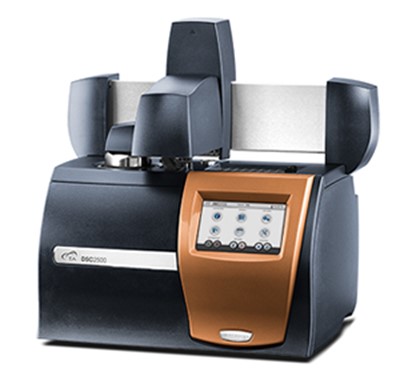
Differential scanning calorimetry is a thermoanalytical technique used to measure the amount of heat released or absorbed by a sample during heating or cooling over a range of temperatures. As well as being used to characterize the thermal properties of a material, a differential scanning calorimeter is used to determine the temperature at which particular phase transitions occur, including glass transition temperature, fusion and crystallization events.
During a change in temperature, DSC measures a heat quantity, which is radiated or absorbed excessively by the sample on the basis of a temperature difference between the sample and a reference material.
DSC is a valuable analytical technique for polymers, organic chemicals, pharmaceuticals, oils and greases, foods and biological materials, as well as metals and some inorganic materials. Typic measurements include:
- Glass transitions, crystallization, and melting transitions
- Curing reactions and kinetics of thermosets
- Oxidative stability of lubricants and polymers
- Purity of pharmaceuticals and organics
- Specific heat capacity of materials
- Catalyst efficiency
Sample types
The DSC can be used to analyze virtually any material that can be put into a DSC sample pan. This includes:
- Films
- Fibers
- Powders
- Solutions
- Composites
- Fusion Cell™ with patented technology for high performance in baseline flatness, sensitivity, resolution, reproducibility, and reliability.
- Exclusive T4P Tzero® heat flow technology for ultimate DSC performance and unique capability to conduct and store heat capacity measurements in a single run.
- Reliable linear autosampler with programmable tray positions for worry-free 24/7 operation, most flexible programming of experiments, and automated calibration and verification routines.
- Modulated DSC®, (MDSC®), for the most efficient separation of complex thermal events.
- Wide range of temperature
- Tzero Press and Pans for fast, simple, and reproducible sample preparation.
Baseline Flatenss (-50 to 300) ≤ 5μW
Baseline Repeatability ≤ 10μW
Temperature Range -90 C to 550 C
Temp Accuracy ± 0.025 C
Temp Precision ± 0.005 C
Enthalpy Precision ± 0.04%